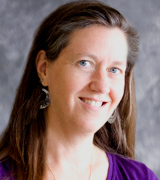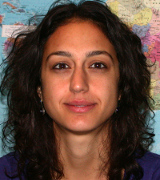Who Gets Regulated? Making sense of the Regulation of Alternate Health Professions in Canada
-
Overview
-
Background
-
Progress
-
Project Team
This research explores the regulation of alternate health professions in Canada to identify the factors and conditions that shape who gets regulated, where and when.
Funding
The project is funded by The Social Sciences and Humanities Research Council (SSHRC) Standard Research Grant 2010-2013 $51,500.
Principal Investigator
Tracey Adams, Ph.D.
Sociology, Faculty of Social Science
The University of Western Ontario
Project Background
Brief Description
Many occupations and professions in Canada are regulated by provincial governments. Regulatory legislation establishes the rights, privileges, and responsibilities of professional practitioners. For instance, legislation regulating medical doctors and other health professionals typically details the kinds of tasks they are allowed to perform, the education, training and examinations required for entry to practice, and it also establishes punishments for those who violate the law and practice illegally. Regulatory legislation is highly coveted by occupational groups as it recognizes their claims to expertise, and their right to practice (more or less exclusively) in a given social area.
A great deal of research has been conducted on some regulated professions like medicine, and scholars have explored what medical doctors did historically to win regulatory legislation, and to earn for themselves a prominent place in the health care system. We know less about other regulated professions, or professions who sought regulatory status but failed to achieve it. Previous research conducted by the principal investigator on regulation in Canada has revealed over 30 regulated professional groups (Adams 2009a, 2009b), and many others that attempted to win regulatory legislation, but failed to do so. This research has also revealed that some factors, previously thought to be influential in shaping regulation (such as occupational size, organization, field of practice, expertise), are not always good predictors of regulatory status.
What, then, does it take to obtain regulatory legislation from governments, and why are some groups more likely to win this legislation than others?
This research project will address these questions through a case study of the regulation of alternate health professions in Canada. Many of these professions -- which include fields such as osteopathy, chiropody, and naturopathy -- have been little studied. They provide ideal subjects for a case study because their regulation has varied substantially across time and place: They are regulated in some provinces, but not others, and provinces have differed widely in how they regulate them, and what kinds of rights and privileges are granted. Examining how the same groups of practitioners managed to obtain regulatory legislation in some contexts, but not others, and how their privileges came to vary across time and place, will enable us to understand the factors shaping professional regulation more broadly.
The key research questions to be explored are as follows:
- How does the regulation of alternate health professions vary across province and time period?
- Can we explain regulatory variations by looking at the nature of professional organizations, organizational activities, or the characteristics of the people practising professions?
- To what extent do provincial differences in state activity and traditions shape the regulation of alternate health professions?
- What role did other interest groups play in shaping the regulation of alternate health professions -- did neighbouring professions, the public, or other organizations shape regulatory outcomes?
Traditional explanations for profession formation emphasize the importance of expertise. As such they cannot explain incidences where the same profession is variably recognized across region. This research promises to advance our understanding of professions and occupations in Canadian society. Further, this research will have policy implications: developing a better understanding of regulatory decisions in the past, can help inform government decision-making in the future.
References
Adams, Tracey L. 2009. "Regulating Professions in Canada: Interprovincial Differences across 5 provinces" Journal of Canadian Studies 43(3, Fall): 94-221.
Adams, Tracey L. 2009. "The Changing Nature of Professional Regulation in Canada: 1867-1961" Social Science History 33(2):217-43.
Papers and Publications
Refereed Journal Publications
(forthcoming) Tracey L. Adams and Nicole Etherington, "The Historical Development of Naturopathy in Canada" in Histoire sociale / Social History
(2012) "The Rise and Fall of Osteopathic Medicine in Ontario" Histoire sociale / Social History 45(89):49-77
Conference Papers
Adams, Tracey L. 2013. "Professional Regulation and Citizenship in Canada: Professions, Migration, and the State " Canadian Sociology Association meetings, June 2013, Victoria, BC.
Adams, Tracey L. 2012. "Professionalization and the State in Canada: 1867-1950." Paper presented at the meetings of the Social Science History Association, Vancouver, BC, November 4th 2012.
Adams, Tracey L. 2012. "Exploring the link between professionalization and social movements: Establishing alternative health professions in Ontario." Canadian Sociology Association meetings, May 29-June 3, 2012, Waterloo, ON.
A growing body of research is exploring the links between professionalization and social movements. Professionalization can be variously defined. In essence, professionalization denotes a set of processes through which a group of people become more professional. This can be an institutional process whereby practitioners of an occupation organize to seek professional status, and strive for recognition from the state and the public and a privileged market position, generally supported through state legislation. On a more individual level, it can denote a process through which individuals attempt to behave in a professional manner, or take on the characteristics of professionals, including training and expertise, a commitment to a field of endeavour, and a commitment to providing a service in an ethical manner. Both aspects of professionalization can be linked to social movements. In an institutional sense, practitioners seeking professional status typically engage in social movements to achieve their goals. Historically, occupations that successfully achieved professional status, and especially state regulation - including medicine, dentistry, engineering, accounting, nursing, and many others - had successful social movements. Practitioners organized, mobilized a variety of resources, and utilized framing techniques to achieve their aims (Larson 1977; Adams 2003, Gidney and Millar 1994). The outcomes of their social movement activity were profoundly shaped by their socio-cultural context and other institutional structures. Groups attempting to professionalize today engage in similar strategies, but their institutional and cultural contexts are profoundly different, limiting their success. The opportunity context has changed, and established professions are often in a position to mobilize considerable resources against aspiring professional groups. In such a context, aspiring professionals increasingly draw on 'experts' in professionalization: lobbyists, and others with expertise in winning over state actors and marketing professions to the public. In this sense, the process can be seen to have 'professionalized' in the individual sense of the term.
This paper will explore the theoretical and empirical connections between professionalization and social movements, through a case study of several alternative health professions (including osteopathy, chiropody and naturopathy), and their social movement activity aimed at achieving professional recognition and state regulation during the twentieth century in Ontario. Emphasis will be placed on the following: (1) aspiring professional groupsí organization, resource mobilization, and framing techniques; (2) the counter-‐mobilization against them by established professionals, and the changing institutional context in which professionalization occurs; and (3) the growing reliance on experts to win over state actors and the public, and to navigate the professionalization process in a crowded health care field.
Adams, Tracey L. 2011. "Professional Regulation in Canada." Professional Regulation International Conference, SOCIUS, Lisbon, Portugal, November 11, 2011.
Adams, Tracey L. 2011. "The Development and Regulation of the Chiropody Profession in Canada." Canadian Sociology Association Meetings May 30-June 4, 2011, Fredericton, NB.
The literature on professions provides a variety of explanations for how professional groups become established, and why some are able to obtain regulatory legislation from the state, while others are less successful. Some explanations focus on state actors and what they might gain through regulating professions (most commonly, expertise and legitimacy). Others focus on professional characteristics, highlighting that organized occupational groups with advanced education, an esoteric body of knowledge, a public service orientation, and other characteristics typically have more success claiming professional status than do thers. Nevertheless, many of these sociological explanations point to general characteristics, and hence are of limited use to scholars trying to explain why the same profession is regulated very differently across time and place. This paper provides a case study of CHIROPODY (Podiatry), a regulated profession in many Canadian provinces, but one that has been regulated very differently across province and time period. A review of the development and regulation of chiropody across Canada sheds new light on sociological explanations of profession creation and profession-state relations.
Adams, Tracey L. 2009 "Alternative Health Professions and their Regulation in Canada: the case of Osteopathy" Canadian Sociology Association Meetings, May 2009, Ottawa ON.
Principal Investigator:
Tracey Adams, Professor

- Work
- Professions
- Regulation of professions
- Social inequality
- Gendered professions
- Health professions
Research Assistants
Esra Ari

Research Interests: Social inequality; Globalization; Migration; Race and ethnicity; Racialization; Social class; Multiculturalism; Ideology
Tentative Dissertation Title: Multicultural Ideology: Is it false consciousness? A comparative study of second-generation Jamaicans and second-generation Portuguese in Toronto
Supervisor: Anton Allahar
eari@uwo.ca
SSC 5225



